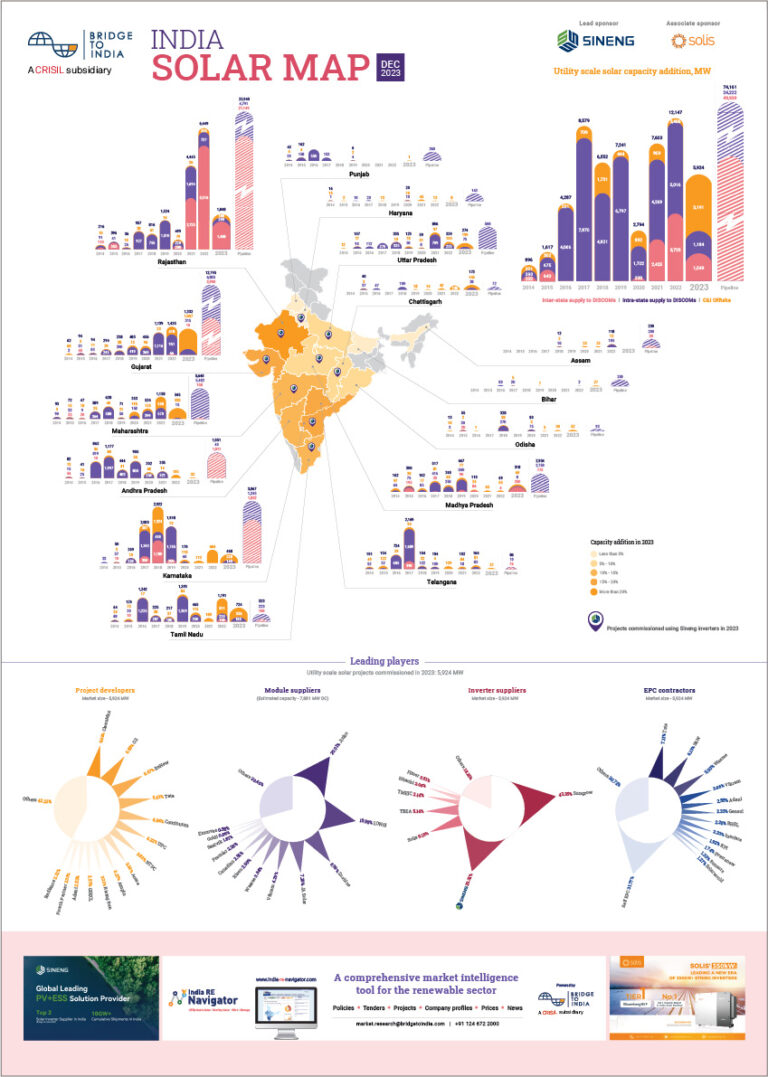Gujarat has done it again. The state’s power procurement agency, Gujarat Urja Vikas Nigam Limited (GUVNL), has cancelled projects awarded under its 700 MW Dholera and 100 MW Raghanesda solar park tenders. Auctions for the two tenders were completed in August 2020 and September 2020 respectively with projects being awarded to Tata Power, Vena, ReNew, O2 Power and SJVN at tariffs between INR 2.73-2.81/ kWh. GUVNL had already issued LOAs (letters of award) to the successful bidders but has now reversed its decision in view of low tariffs discovered in recent auctions.
- Cancellation of bids would lead to substantial losses for the successful developers, who had started making concrete progress on project development;
- GUVNL’s decision is inexplicable since both tenders were repeatedly undersubscribed due to challenging locations with high flooding and corrosion risk;
- An urgent overhaul of tender framework is required to make the process sacrosanct and reduce opportunistic leeway for all parties;
GUVNL believes that since tariffs have been coming down, it should conduct fresh auctions and seek lower tariffs to protect consumer interests. It had previously cancelled a 500 MW solar auction completed in April 2018 (tariffs of INR 2.98-3.06/ kWh) and another 700 MW solar auction completed in December 2018 (INR 2.34-2.89/ kWh) for the same reasons.
GUVNL’s decision would lead to substantial losses for the successful developers. Mindful of the short construction period (15 months) and tough site conditions, they had already paid solar park charges and were making concrete progress on project development. Some of them have even placed equipment orders. For its part, GUVNL had also filed petitions with the state regulator for approval of auction tariffs and was apparently in regular touch with the developers for ensuring speedy execution.
Moreover, GUVNL is well aware that Dholera and Raghanesda are challenging locations for solar projects. The sites, located close to the coast, have silty soil and face extremely high flooding and corrosion risk. Projects require special design entailing higher capital (about INR 3-4 million/ MW, capital cost uplift of about 6%) and operating costs to deal with these risks. The two tenders were repeatedly undersubscribed until GUVNL increased ceiling tariff to INR 2.92.
We believe that cancellation of tenders with benefit of hindsight is indefensible. Unfortunately, the developers have no legal protection under the existing bidding framework until the PPAs are signed and approved by respective regulators. Unwillingness of DISCOMs to sign PPAs and arbitrary cancellation of tenders are draining market confidence.
An urgent overhaul of the tender framework is required to make auctions sacrosanct and reduce opportunistic leeway for all parties. Amongst other measures, tenders should be issued only after identifying offtakers and with ceiling tariffs, pre-approved by the regulators. Second, the tenders should have clearly specified deadlines for PPA execution and project construction. Thirdly, if the procurement agencies decide unilaterally to not proceed with a tender after completing auction, they should compensate successful bidders for their bidding effort and cost.













